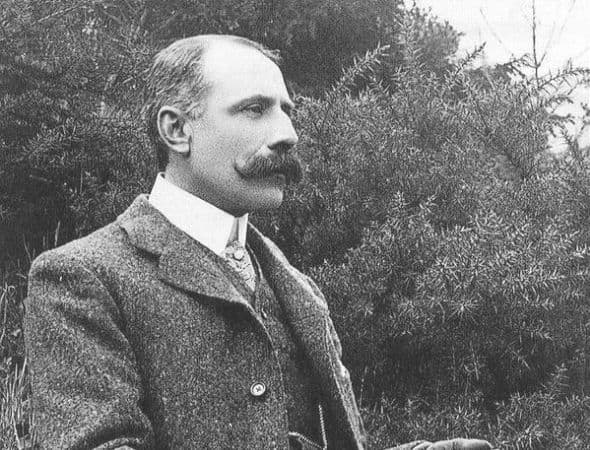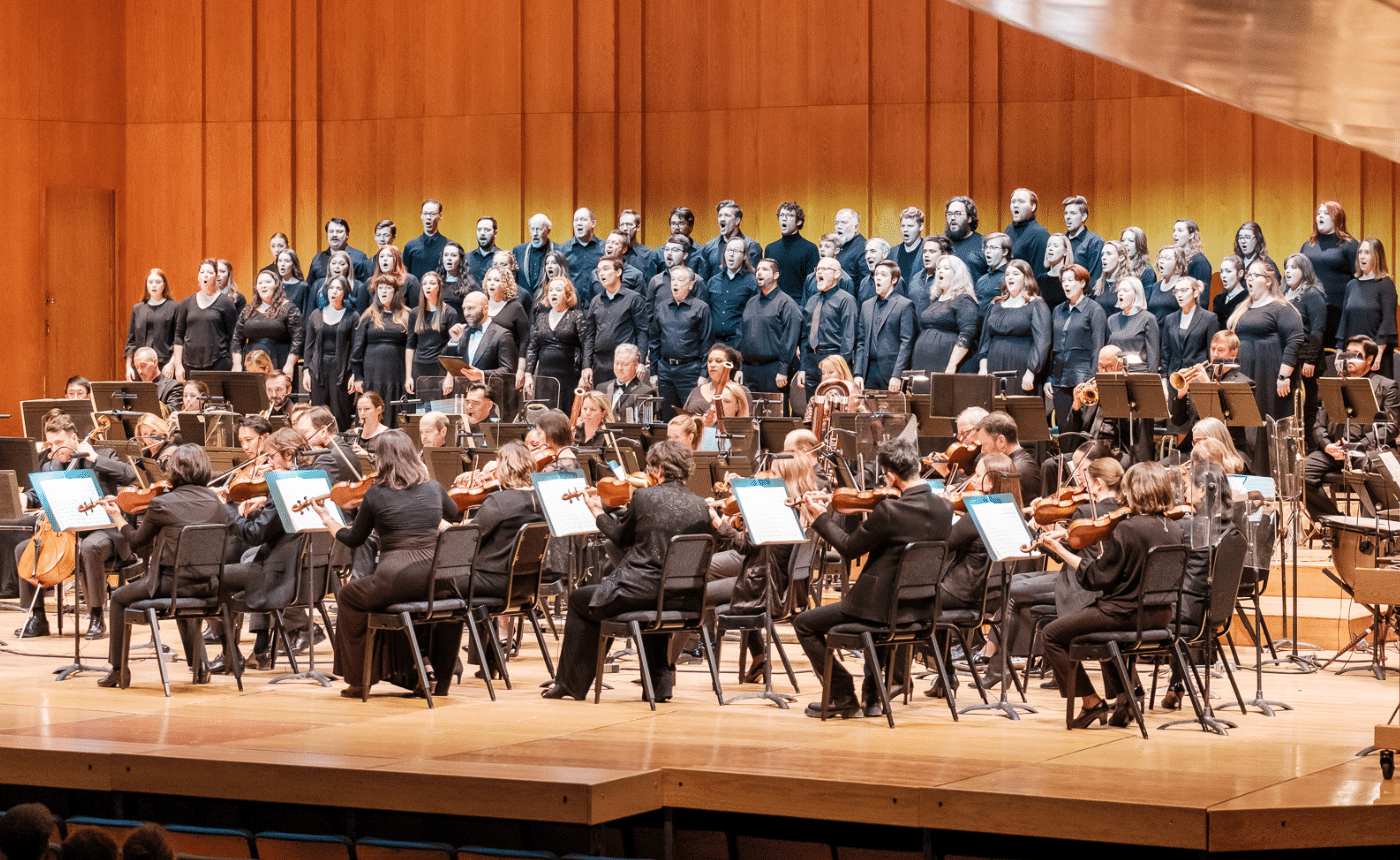ELGAR: Enigma Variations
by Jeff Counts
THE COMPOSER – EDWARD ELGAR (1857-1934) – Stories of how a certain piece of music came to be are occasionally more colorful than the work itself. Coincidences, accidents, alternating strokes of luck and genius – these are the central ingredients of such legends. As with so many others, this one seems too perfect to be true. Edward Elgar returns home after a busy day and sits down at the piano to unwind. He begins to idly improvise and summons a tune that catches his wife’s ear. Her positive reaction to the theme leads him to playfully speculate on how some of their friends might render it and from this simple lark is born his most celebrated masterpiece.

THE MUSIC – The Enigma Variations, though humble and domestically adorable in inception, settled Edward Elgar’s reputation once and for all on the international stage. It was a personal triumph that also served as a signal to the rest of Europe that England need no longer bow before the elite musical countries on the continent. The “Enigma” mentioned in the subtitle referred not to a single riddle in the score but two, the easiest to solve being the “friends pictured within.” Each of the fourteen variations bears the initials or nicknames of people close to the composer, including his wife, various fellow musicians and even himself. Only Variation XIII (“ *** ”) was left open to conjecture. The three asterisks placed there by Elgar were guessed at for many decades with the only a contained quote from Mendelssohn’s Calm Sea and Prosperous Voyage available for guidance. We know who it is now, as you will see in the accompanying Dramatis Personae by Scott Foglesong, but the question itself is emblematic of this music’s status as a delightful investigational puzzle among Elgar’s peers and admirers. For historians, then and now, the second of the “Enigma’s” is the one that keeps the library candles lit until dawn. It is the notion that a hidden meta-theme haunts the original melody. Elgar himself encouraged this rumor of a popular tune that, though not literally extant in his music, was the material upon which his motto was based as a counterpoint. Whether or not this was just a savvy bit of marketing and misdirection, we will never know. Elgar took the truth with him to the grave and enjoyed every second of the speculation he heard in the meantime. The trendiest among the ongoing scholarly “solutions” to the supposed master enigma include Rule Britannia (the favored choice of an Elgar Society Journal correspondent), Auld Lang Syne (the favored choice of just about everyone else for a while), Pop Goes the Weasel, and recently, the Dies Irae.
THE WORLD – Elsewhere in 1899, Cuba was officially rid of Spanish rule, Sudan began a 56-year period of joint Egyptian/British control, the Fiat automotive company was founded in Italy and Who’s Who in America was published for the first time.
THE CONNECTION – Enigma Variations was last performed on the Utah Symphony’s Masterworks series in 2012. Mark Wigglesworth was the conductor.











